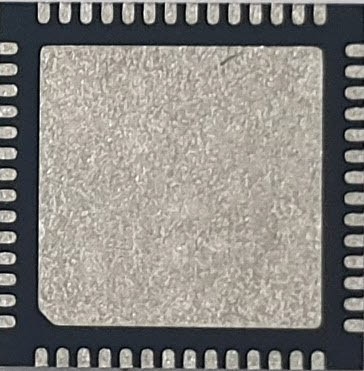

KCS passed the Korea Cryptographic Module Validation Program(KCMVP) of the National Intelligence Service. The system-on-chip (SoC) method video encryption chip 'KEV7', which the company developed independently two years ago to advance into the Internet of Things (IoT) security business, opened the door to entering the public institution market. The video encryption chip encrypts and decrypts video information in real time, so even if the video information is stolen in the middle stage, since the data is encrypted, there is no risk of exposure.
KCS (CEO Hosung Lee) announced on the 29ththat it had obtained the overall Level 2 Cryptographic Module Verification (KCMVP) certification for video encryption chips from the National Intelligence Service. The encryption algorithm embedded in the company's video encryption chip passed the KCMVP verification tests such as safety, reliability, and interoperability.
In particular, the overall level 2 requires level 2 or higher for all of the security requirements verified in levels from 1 to 4, so it is recognized as a high security level of certification. This is because the lowest grade among all grades is recognized as the overall grade.
KCMVP is a system that verifies the safety and implementation suitability of cryptographic modules used to protect important information that is not classified as confidential among data communicated in the information and communication networks of national and public institutions. Systems used by national and public institutions must be equipped with a cryptographic module certified by KCMVP.
In order to supply products to various manufacturers such as IP cameras, drones, Internet video phones, and intelligent remote meter readers, the company has two products, FBGA (Flex Ball Grid Array, 121 pins) and QFN (Quad Flat Non-leaded, 56 pins), and received KCMVP certification for video encryption chips for both of types. It is supplied in the form of a single encryption chip or encryption module.
The hardware-based encryption engine embedded in the video encryption chip enables the verification target encryption algorithm to maintain improved speed and optimized security level. High-performance security technologies such as true random number generator (TRNG) and physical unclonable function (PUF) are applied to the encryption chip. TRNG provides randomness for all random numbers that occur in the cryptographic algorithm to be verified.
In addition, it supports various cryptographic algorithms such as the Korean cryptographic standard ARIA and the American cryptographic standard AES. Also, a digital signature function with the elliptic-curve cryptography (ECC)based elliptic-curve digital signature algorithm (ECDSA), and a key setting functionwith the elliptic-curve Diffie-Hellman (ECDH) are used to prevent differential power analysis (DPA) attacks aimed to hackcryptographic chips.
With the acquisition of the crypto-chip KCMVP certification, the company not only entered the public and defense markets in earnest, but also expected to gain boosted the demand for crypto-chips in the general corporate market such as IoT, due to the increase in security reliability.
KCS official said, "We will mass-produce microcontroller units (MCUs) with embedded video encryption chips with our partnersto participate in KEPCO's Advanced Metering Infrastructure (AMI) security business, local government IP camera security business, and defense drone security business.”
A company official also added, “We will build a safe cryptographic communication environment by applying the KEV7 video encryption chip to various industries such as smart metering businesses for LP gas and water supply, connected cars, electric vehicle chargers, and smart homes.”
By Staff Reporter Sumin Ahn (smahn@etnews.com)